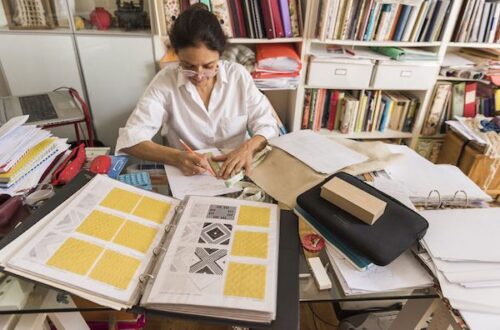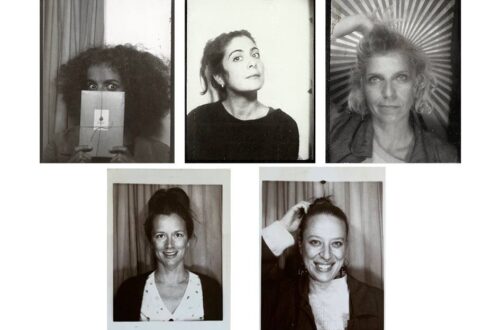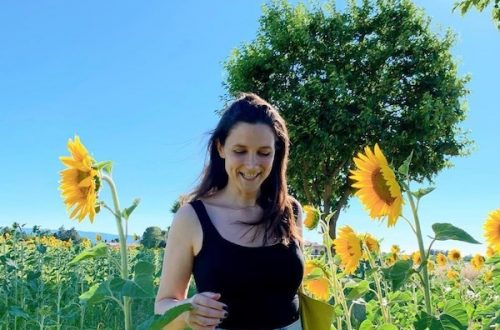
Interview with Author and Guest Judge: Heather Jane Johnson
This interview appears in the May 2021 Issue of The Open Doors Review. To view the magazine, click here.
To listen to the podcast, subscribe on Apple Podcasts, Spotify or click the link below to listen on Podbean.
https://opendoorsreview.podbean.com/e/6-heather-johnson-author-of-1500/
Introduction
Heather Jane Johnson is the guest judge for the May 2021 issue of the Open Doors Review and the author of 1500, a young adult historical novel set in Venice. After many years working as a book buyer in Boston, Heather moved to Italy where she works as a teacher and writer.
My conversation with Heather covered her decision to move to Italy, the research process of writing a book set in Venice, how city’s can come into our lives like lovers and what she learned while self publishing her novel. Below is our edited conversation.
1500: Children are disappearing in Venice. Rumor has it a demon is to blame, but no one knows for sure. Beatrice de la Pietà, an orphan on the brink of a new life, cannot be bothered with such stories though. Meeting the expectations of her new employer, Cassandra Fedele, is all she cares about, and she’ll do anything to hold onto her new apprenticeship as a cook and maid in her household.But matters only become more complicated when Bea meets a girl obsessed with stopping the demon she was so determined to forget. Prompted by her new friend’s dedication to justice, and bolstered by the humanistic education she never bargained on receiving, Beatrice reluctantly dives into the danger and daring that flow through the heart of her watery world.
Interview Extract from the May Issue
Moving to Italy
Lauren: I wanted to start by just going back to the beginning of: “Who is Heather Johnson?” When did you move to Italy, where were you before and where do you live now in Italy?
Heather: I moved to Rome in August of 2011 but I had come to Italy at the beginning of 2010 for three months as an experiment to see how I liked it and also to have a complete break from my life in the US. I felt really lost, I didn’t have any idea of what direction I wanted to head in … I was just kind of treading water, almost killing time. Because of certain events that I had had in my life, I had a lot of regret about lost time and so it caused me a lot of discomfort, the sensation that I was yet again wasting time. So in those three months in Italy I totally fell in love then went back to the US but I wasn’t happy to be back there even though the circumstances I was living in weren’t bad … I felt like my life was elsewhere.
Lauren: You felt unfulfilled?
Heather: Yeah. And I was also looking for work and for the first time in my life I was having problems finding work. What I saw was that the fact that I had spent three months in Italy as an adult was a reason for people to eliminate me as a job candidate for jobs I was super qualified for because Americans saw that decision to spend time in Italy, almost as a form of irresponsibility – that you just cut and leave and go traipsing around a European country for three months. Kind of like: How dare you?
Lauren: Wow, like you’re not trustworthy. It’s like Italy laid claim to you and said you are not even going to get a job in the US until you get back here!
Heather: Yes, exactly. That was the sense I was getting. So that’s the background of why I made the leap and then I ended up being in Rome close to four years which I loved at first and then something shifted about two years in. I started to feel that the city was deteriorating, something felt off. I also had a dynamic at work that was very stressful at the school I was working at. So when I came to Umbria, specifically to Foligno, just for a week to watch a friend’s cat, I felt really intrigued and drawn to try living in a new place in Italy that was close enough to still maintain my work in Rome. So that’s when I made the leap to Foligno, directly in the center of Italy.
Writing a Book about Venice
Lauren: So along the way you decided to write a book that became “1500” that was published in 2020. This is a book set in Italy, in Renaissance Venice so it seems safe to say that probably you would not have written a book quite like this if you had stayed in the US. My question is: Do you think you would have written a book at all if you stayed in the US?
Heather: I certainly never would have written the kind of historical and deeply researched book set in Italy if had I not come to live here. Without a doubt. Even just from a practical point of view of having enough Italian to know the search terms of what I was looking for. And to look at all the Italian versions of the Wikipedia pages for example which are often much more detailed about particular things because, well, they know more about their history and their country. Then there have been books written about some of the characters in my book that were completely written in Italian and never translated into English. So, I think that even just from a language perspective I had tremendously more material to work with.
Lauren: And you were going to Venice and actually reading and handling original texts from the Renaissance as part of your research.
Heather: Exactly. That was one of the most exciting experiences of my life to handle wills from over 500 years ago. But also, to have the capacity to chat with the archivist. If I hadn’t felt comfortable with my Italian I never could have just randomly had that impulse to pop in my head to say, “I should get that guy’s opinion about this particular thing.” It was just really emotionally enriching to be able to interact with Venetians in Italian because then they could fully and freely express themselves and there wasn’t this language barrier. I cannot express how many doors that opened for me and rabbit holes that I just never would have been able to go down. Venice is an incredibly magical place. It’s the only place I’ve ever been that was even better than my imagination.
Lauren: I’m thinking about the experience of reading your book and one of the things that I loved about it is that you really feel you’re there. As a reader, you are immersed in Venice in a way that I don’t think would have come across if you hadn’t personally gone there over and over again to be in Venice and to talk to the people living there.
Heather: After I had tackled the main part of the research that I was trying to uncover, I purposely would plant myself in a particular Campo (piazza in Italian) for an hour with a notebook and just observe, which was quite Zen-like. It was almost like a form of meditation because you have to be completely in the moment.
I could see: this is how this city operates on a daily basis for the people who live here and that regardless of it becoming almost a sort of Disneyland or a theme park with the destruction that Airbnb causes or that over-tourism causes… hopefully that part of Venice will survive because for some people it is their home.
Lauren: Yes, which you can completely forget if you’re just visiting for a day – you’re going to miss so much about what is the real Venice, what is the essence and soul of this place.
Love Affair with a City
Heather: I think one of the really fascinating aspects of moving to a foreign country and staying there for a decent period of time and then moving to different places within that foreign country and spending a lot of time in particular cities just because you like them, is that cities become like lovers. And when you live in a city versus just visiting a city, you get to know that city like a lover and you either fall more deeply in love with it or you start to have a love hate relationship with it as you do with many lovers. You probably move there because you idealized it in some way or maybe for work or to escape but often there’s sort of some sort of idealization and then you have to go through the process of having those ideals shattered and learning all of the negative sides of that particular place.
Lauren: And you see all the little annoying qualities that he can’t live with on a daily basis but they were so great on your romantic vacation!
Heather: Yes yes yes. And how also- you know that phrase that people come into your life for a reason, a season, or a lifetime – I think places are like that too. Some place might be actually the perfect place for you for a particular amount of time but then you kind of outgrow it.
I’m starting to feel with the pandemic -and I think a lot of people are doing this- the pandemic is forcing you to look at the defects, the flaws of your job of your relationships, of the place you live in a starker light because now you can’t escape or now you’re doing your work at home or now your kids are at home all the time or you are stuck in your city. So the question is: Do you really live where you live or do you actually live between two different places? Do you actually have one foot in one place and one foot in another?
Lauren: You know I lived in Rome for nine years, basically most of my 20s, and that was absolutely perfect. Rome is beautiful but a little bit messy and crazy and disorganized and that was completely me. I was looking for what I wanted to do with my life and what I wanted to do in Italy and it was the perfect place for that adventure. Now I’ve moved to Tuscany which is much more laid back and stable and that’s exactly how I feel in my life right now so that’s right pretty spot on, I would say.
Heather: And then you may go back to a particular city but for completely different reasons. Maybe you’re in a new part of your life and there was part of that city that was inaccessible to you in your previous incarnation but now that you’ve evolved two, three, four levels up (hopefully up ‘cause you can devolve down as well) so hopefully you’ve evolved and then you discover this layer of the city that was almost invisible to you before … like platform nine and three quarters.
On Self Publishing
Lauren: I wanted to ask you about your decision to self publish your book – why you decided to do that and what was the process like.
Heather: OK so, my journey to self publishing is a bit of a strange one in that I actually really did not want to self publish my book. I wanted the stamp of approval from an established publisher even though, I have to say, as a book buyer I saw an incredible amount of crap come across my desk and so one of the things you learn is that just because your book is officially published by a particular company doesn’t mean it’s good.
Lauren: So you had seen first hand that the stamp of approval of going with traditional publishing was not really an indication of a book’s merit or success.
Heather: Not necessarily.
Heather spent one year querying literary agents and publishers in the U.S. before finding a small press in Italy that was interested in publishing her book. She jumped at the opportunity but as she got further into the details of their agreement, she began to realize she would be selling herself short if she continued with them and decided to publish the book (in English) through Ingram’s self publishing platform. We go into the details of this in the audio podcast version of the conversation.
Lauren: Are you happy with your decion to self publish?
Heather: I would actually never encourage anyone to just automatically self publish. I think if you’re going to take all the time and energy to write a book – which is a huge accomplishment, massive – query, query, query. Get to know what’s hot, what’s out there, what people want, what people are looking for, because maybe you wrote exactly what the market is asking for and so heaven forbid you self publish that!
Lauren: What would be your advice to someone looking to get their book published?
Heather: So I think what I would say to anybody considering self publishing is: what are your goals? Do you want to just merely make this book available to your friends and family (and use your own platforms and connections to promote it) and you’ll be happy just to have it out there and have it in the possession of the people you love and care about…..Or do you want the possibility of mass recognition or even a niche recognition? Let’s say you’ve written a mystery novel – do you want the small possibility that your mystery novel could be big with people who love mystery novels? If that’s something that you’re really dead set on, I think you need to dedicate some time to trying to get it published in the traditional way. Also because I think that you never know, you could get lucky.
I almost think it’s like a rite of passage. That you’d be cheating yourself not to try. It’s kind of like: do you believe in your book or not? Because if you really believe in your book you will try to get it traditionally published, you’ll go through that rejection, you’ll go through the hours of sifting through hundreds of agents to see if they’re open to your kind of book, you’ll write those letters, you’ll watch those YouTube videos. Are you willing to do that? Because I think if you are, then you’re really committed to what you created. If in the end you end up self publishing anyway, at least ultimately you know you really believe in it and it doesn’t matter what happens really just that you believe in it is all that’s really important.


